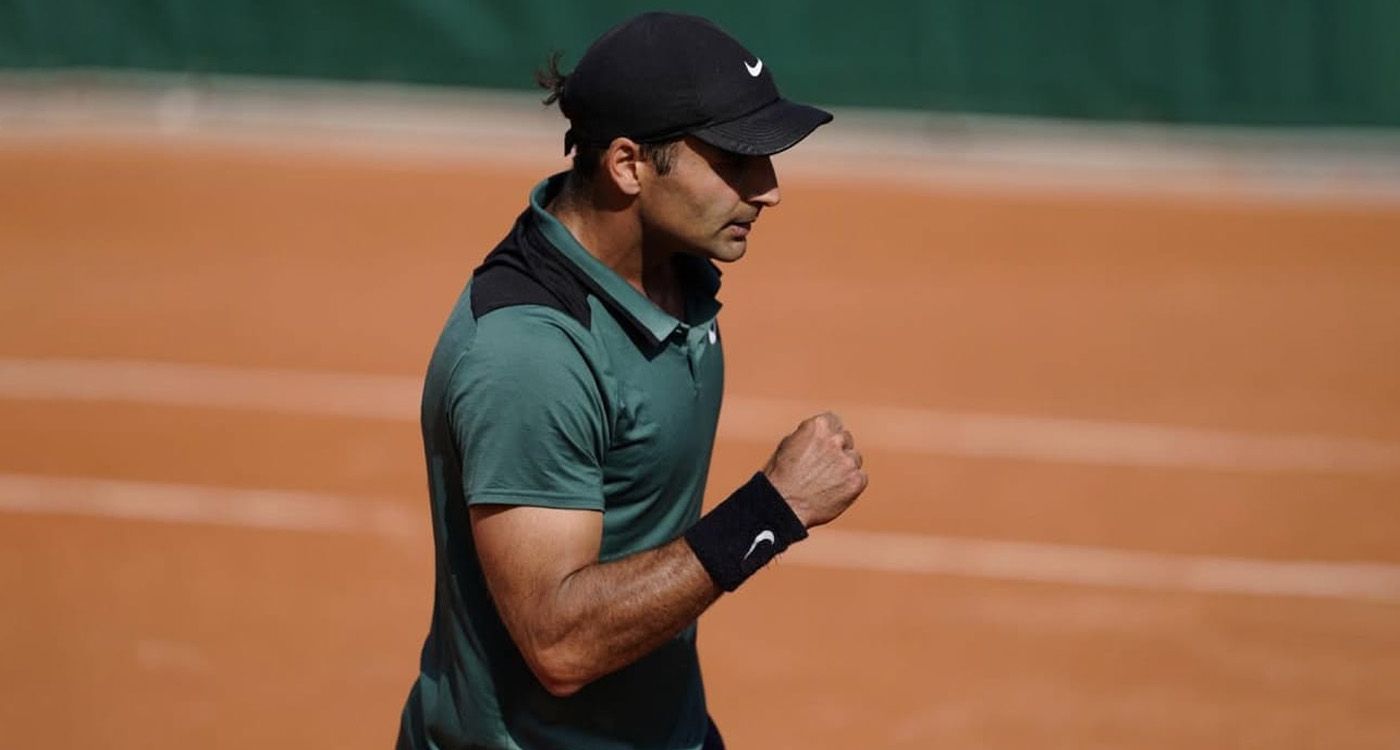
He leaves Roland-Garros with a loss, but enters history: Benjamin Hassan has etched his name in red letters on the Parisian clay. Lebanese tennis has found its pioneer.
There are defeats that feel like victories. Benjamin Hassan’s loss to Italy’s Matteo Gigante (4–6, 2–6, 0–6) in the first round of Roland-Garros is one of them. The score was harsh, the outcome final — but the symbolism was immense. For the first time in history, a Lebanese tennis player played a main draw match at Roland-Garros. That alone is monumental.
Against the world No. 167 — more experienced and backed by the full weight of Italy’s tennis federation — Hassan held his own, especially in a high-intensity first set that lasted 42 minutes, before giving in to Gigante’s consistency and power. But the most important thing happened off the scoreboard. Lebanon — mired in repeated crises, lacking infrastructure and any serious sports policy — saw one of its own rise among the elite, stepping onto the storied red clay of prestige and legends.
A Historic Achievement
Born in Germany to a Lebanese father, Benjamin Hassan (ranked 221st in the ATP) achieved the remarkable feat of qualifying for the main draw without dropping a single set in two rounds, defeating France’s Sascha Gueymard Wayenburg and Japan’s James Trotter. A feat impressive in itself, made even more so by the fact he was not at peak physical condition. “I was a bit sick, but I found my rhythm here in Paris,” Hassan said after qualifying. “I tried to finish the matches quickly to preserve my energy.”
By reaching the main draw, he wrote a new chapter in history as the first Lebanese player ever to qualify for Roland-Garros — one of the four Grand Slam tournaments. He now joins fellow Lebanese player Hady Habib, who had a similar breakthrough at the Australian Open this past January, signaling the rise of an ambitious Lebanese tennis scene despite limited resources.
A Lack of Official Support
The contrast is stark: on one side, Gigante’s Italy — a tennis nation with clubs, infrastructure, coaches, sponsors, and strong institutional and federal support. On the other, Benjamin Hassan, training in Germany, without any structured backing from Lebanon — only the moral encouragement of a diaspora cheering his every point from afar.
“I receive messages from all over the world. It’s amazing to feel that an entire people is supporting me,” he said. But messages can’t replace funding, training conditions, wild cards, or physical trainers. And yet, Lebanon was there — silently, in the background, embodied by Hassan — whether on the Philippe-Chatrier Court or an outer court.
Paris, the City of Second Chances
It’s not the first time Paris has been the stage of his exploits. Last year, he narrowly missed qualifying. A few months later, at the Paris Olympics, he became the first Lebanese player to compete in an Olympic tennis tournament, even winning a match against American Christopher Eubanks.
This time, the step was even greater. Despite the early exit, Benjamin Hassan’s name is now written in the annals of Lebanese tennis. A pioneer, a beacon, a flame lighting the path to a future still uncertain — but full of hope.
“What I achieved here is a major step for Lebanese tennis,” he said. “I hope to inspire young people, to show that with hard work, even the biggest dreams are within reach.”
A Lesson Beyond Sport
There is one message to take away: talent exists, but it needs to be recognized, supported and nurtured. Benjamin Hassan has done his part. Now it’s Lebanon’s turn to learn the lesson. The dream may be broken, but the path has been carved. The pride, however, remains — solid as the baseline.




Comments